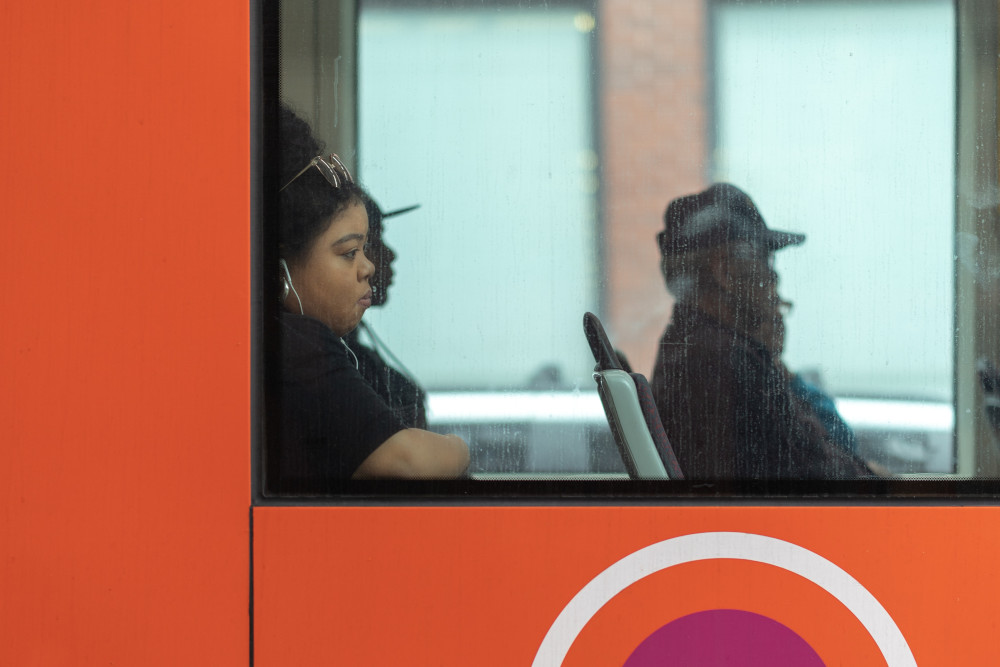
(Unsplash/Mark Cook)
The United States Conference of Catholic Bishops is in the midst of a three-year, multi-million dollar campaign to reinforce belief in the real presence of the Eucharist. While the cost is a mere widow's mite compared to the mid-term political campaigns this country has recently weathered, it nonetheless sounds like a great pile of cash to many Catholics — myself included.
I've been going to Mass longer than most of the bishops leading this effort have been alive. Age alone does not make me an expert, but my length of days spanning the pre-Vatican II practice of attending Mass to the post-Vatican II practice of celebrating the Eucharist does give me perspective.
Distinct though distant memories of attending Mass in the pre-Vatican II church abound in my mind. I recall making my first Holy Communion decked out in a white Palm Beach suit as was the custom at St. Philip Neri Church in the South Shore neighborhood of Chicago. My classmates and I said the Communion host tasted like cardboard, much to the chagrin of our grammar school nuns. Reading My Sunday Missal, "explained by Father Stedman," and eventually graduating to a much thicker tome, the St. Anthony Daily Missal, helped me follow the ritual of the Latin Mass.
A few years later, I memorized the Latin Mass responses from a red cover booklet, How to Serve Low Mass, qualifying me as an altar boy. In those days of yore, Mass was a hermetically sealed experience focused on the transubstantiation of wine — which only the priest could receive — and of bread, which congregants could receive but not touch!
That all changed with the Second Vatican Council.
Advertisement
We no longer passively attend Mass; now we actively celebrate the Eucharist. Thanks to the Second Vatican Council, celebrating the Eucharist and identifying the real presence has expanded well beyond attending Mass and receiving the cardboard-tasting Communion wafer.
Nowadays, my celebration of the Eucharist begins with my bus ride to the faith community I have chosen to attend, rather than my assigned geographical parish. I am one of about half of urban churchgoing Catholics in this country who have eschewed my territorial parish in favor of a destination faith community.
The bus I ride early on Sundays travels along Lake Michigan. From my seat, I once saw a man reverently approach the lake, dip his fingers into the water and make the sign of the cross. His recognition of the real presence embodied in the natural world has always stayed with me. Our common home is God's home too. I think of that stranger's little ritual with mighty significance when I dip my fingers into the holy water font as I enter the sacred space of my faith community. The soul can see the grace and beauty that lies beneath appearances.
The health care workers riding the bus to various nursing facilities along the route are on their way to yet another real presence, as they care for people whose bodies can no longer care for themselves. Their Sunday morning rituals with the real presence of people confined to beds, wheelchairs, and walkers are also revelatory. I find myself remembering these blessed, broken bodies and the health care workers ministering to them during the prayers of the faithful.
Often an elderly Black couple will hobble onto the bus, each with a cane in one hand and a well-worn Bible in the other. They are decked out in their Sunday finery — she in a fancy dress with a rhinestone brooch, he in a double-breasted suit with a handkerchief that matches the color of her dress in his lapel pocket. They, too, are on their way to church, to a different faith community than my own that celebrates the real presence of the biblical words clutched in their hands. I think of them and their celebratory faith during our liturgy of the word.
Pondering all of these encounters, I know I have already gone to the altar of God before stepping inside the church building.
Will the bishops organizing this Eucharistic revival lead the faithful into a wider appreciation and understanding of the real presence that is more expansive than a doctrine of faith and the obligation to attend Sunday Mass? I am not optimistic about that.
The real presence on my Sunday mornings does not end with our faith community's celebration of the Eucharist. Afterward, a small group of us go to brunch. I, along with others in this group, consider this meal a principal part of our liturgy. Our wide-ranging conversations often turn to the day's readings and homily. Our discussions about them over coffee, omelets and bagels — sometimes complimentary, other times critical — never fail to provide myself and other brunchers with additional glimpses into the real presence in our lives. These meals are our own North American practice of comunidad de base.
On my bus ride home, I will sometimes see a person searching through a dumpster, looking for food. How can I not think of the insight into the Eucharist from the late Jesuit Superior General, Pedro Arrupe? "If there is hunger anywhere in the world, then our celebration of the Eucharist is somehow incomplete everywhere in the world."
I wonder, have I just witnessed a missing dimension to the real presence?
Will the bishops organizing this Eucharistic revival lead the faithful into a wider appreciation and understanding of the real presence that is more expansive than a doctrine of faith and the obligation to attend Sunday Mass? I am not optimistic about that. Nonetheless, I will continue my lifelong search for the real presence in my life.








